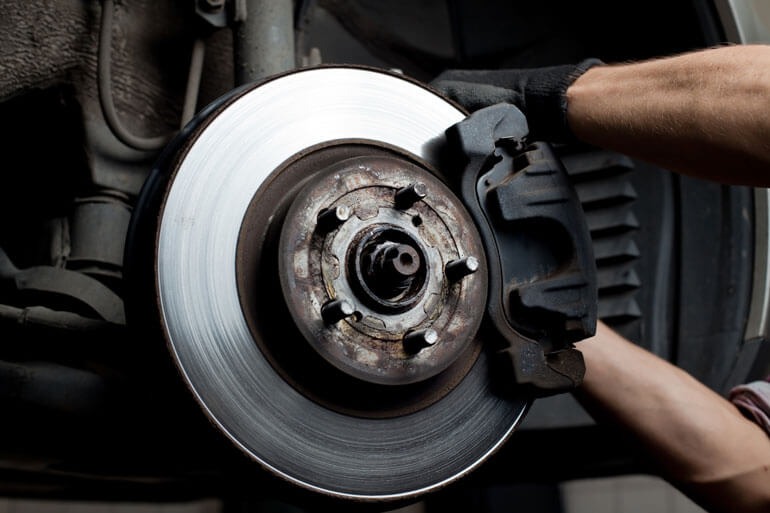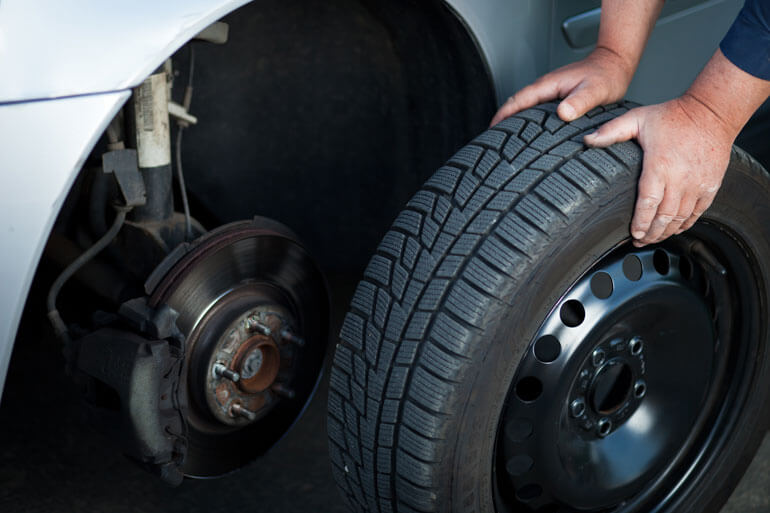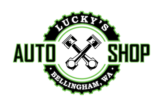Brake Service In Bellingham, WA
It is important that you keep your brakes in good repair. You never know when you might have to make a sudden stop. Having them go out could cause a serious accident. Your brakes should be inspected at least once a year. Here in the Pacific Northwest, we need our brakes to operate efficiently in all types of weather and conditions.
It is our recommendation that you have a brake service if there is a low or spongy brake pedal or if you continuously hear squealing or grinding noises when pressing on your brake pedal. Worn brake pads that sound like metal grinding on metal can cause other damage, and you will incur a more costly repair.

When you bring your vehicle to us for a brake service we will road test your vehicle first then inspect the following:
- Brake pads and shoes
- Rotors and drums
- Calipers, master cylinder and wheel cylinders
- Leaks
- Hoses
- Brake lines
- Brake fluid
- Emergency brake adjustmentSometimes your vehicle’s brakes will alert you when there’s trouble. Whistling noises, chirping sounds and grinding are indications that brake repair is required. Here are some common causes of brake pedal pulsation and/or noise:
- Worn brake pads
- Heat-cracked or worn rotors
- Loose-fitting brake pads in the caliper
- Uneven torque of lug nuts or caliper hardware
Brakes often come equipped with a small, thin piece of metal attached to the brake pad to act as a warning indicator when the pad material is getting low and the brake pads should be replaced. This device makes a chirping noise on brake application, letting you know it’s time for a brake service.
Call Lucky's To Schedule Your Brake Check: 360-656-5200
The major components of a braking system are listed below:
Brake Calipers
Signs of wear:
- Brake lockup
- Vehicle pulls to the left or right when brakes are applied
- Reduced braking force
- Spongy brake pedal feeling
- Brake pedal pulsation
- Longer stopping distances
- Fluid leakage near caliper

Brake Pads
These flat pads comprised with frictional material make contact with the rotor, bringing your vehicle to a stop.
Signs of wear:
- Chirping, grinding or squealing noise
- Difficulty stopping
- Low brake pedal height
Brake Rotors
Used mostly in rear braking systems, brake shoes press against the inside of your brake drum to cause friction, slowing or stopping your vehicle.
Signs of wear:
- Low brake pedal height
- Longer stopping distances
- Squealing or unusual noises
- Brake pedal pulsing when depressed
Brake Hoses
The brake hose carries brake fluid from the solid steel brake lines on your vehicle’s frame to the caliper or wheel cylinder. Flexible brake hoses are necessary to allow the caliper or wheel cylinder to move freely with your vehicle’s suspension.
Signs of wear:
- Spongy brake pedal feel
- Visible hose cracks
- Fluid Leaks
- Damp appearance on hose
- Vehicle pulls to the left or right when brakes are applied

